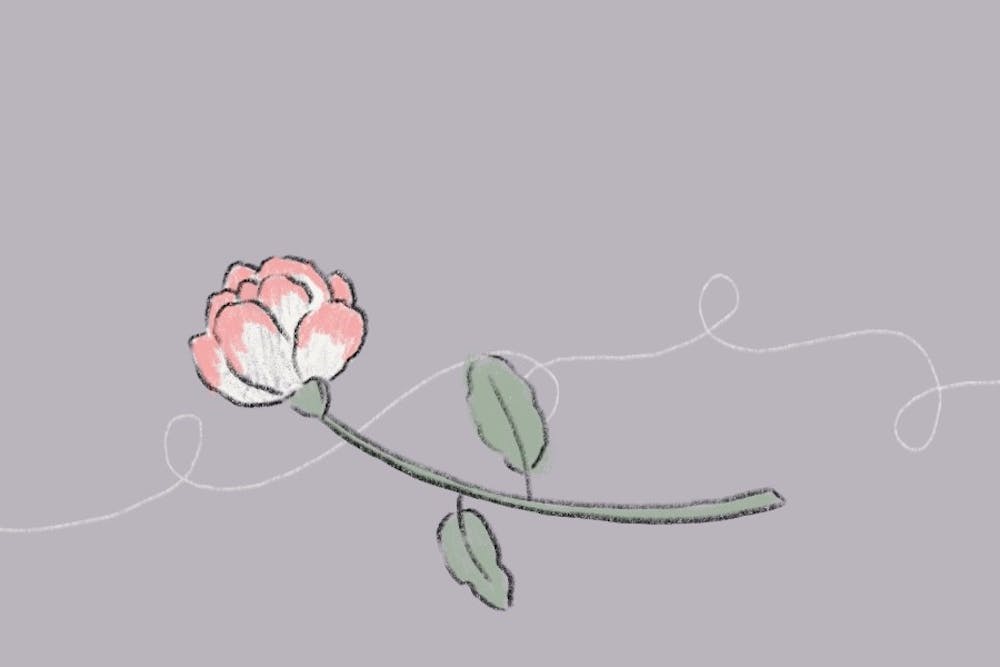I am 11, sitting on my father’s duvet, eating pieces of greasy popcorn, and watching American Idol with him. I’m anxious about the algebra test I have to take in a few days, convinced that I will fail even though I have been studying for hours. I redo problems in my head, repeating the associative, commutative, and distributive laws.
“Dad, will I always be so scared like this?” I ask him.
“No,” he promises, “Things will get better.”
It had been two years since my mother died, and I didn't think about her much. Instead, I obsessed over school. It was easy for me to memorize dates and equations and read books. In fact, learning prevented me from dwelling on the loss.
Following my mother’s breast cancer diagnosis when I was three, CAT scans, biopsies, brain lesions, and tumors occupied my childhood. I was too young to know how to tie my shoes, let alone understand that my mother was dying. On some level, I imagined that she would get better, and that cancer was like recovering from a common cold.
At times, I was blind to my mother’s suffering. I occupied my time with distractions. I used to bring a stuffed puppy to the hospital where she received chemotherapy, comb its faux fur, and chat with the nurses like we were at a nail salon. When my mother lost her hair to the chemo, I was excited to try on the blonde wigs she got from the hairdresser. The hospital also gave her trinkets that I loved to play with: a medicine ball from Sloan Kettering I threw around the living room, a dry erase calendar from a drug company I scribbled family members’ birthdays on, mini electronic massagers I let vibrate on my back. But when I was nine, and my mother died, I was forced to act as an adult and confront her absence as well as the intense desire to live up to her legacy.
I started to feel a new pressure to be great. My mother grew up in an abusive household in the Midwest. She scrubbed floors and worked at McDonald’s to afford college and law school. Like many parents, she sacrificed everything for me. To repay her, I wanted to be a hard worker, the person who is first to arrive and last to leave, who is eager to learn and unafraid of risk. Although anxiety and self–imposed unrealistic expectations often hindered it, hard work was how I rebuilt myself after the tragic loss of my mother. I am lucky I now have the opportunity to carry on that work in college. But I was, and am, too hard on myself.
I came to Penn two and a half years ago, still tortured by imposter syndrome and the fear of not being good enough. Instead of putting in effort to make friends or explore Philadelphia, I resorted to what I knew: Hard work. I barely spoke to anyone in my hall, hiding in my Quad single studying Spanish verb conjugations and crafting essays for English courses and writing for the DP.
Now, I am more than halfway done with my time at Penn, and I've been very lucky here. I'm the leader of an organization I care deeply about, I have made friends whom I love, and I have succeeded in my classes. But I am still a worrier. Recently, I've been just as terrified as I was after my mother died, and preoccupied with not being good enough. I'm in the middle of a transition period, adjusting to a new role at the DP while realizing that my closest friends are nearing graduation and that I have to start planning my senior year. Transitions are unsettling for me because instability and unanswered questions remind me of what it was like to lose my mom. So I feel her absence now, more than I have in a while. And with that comes the same pressure to be perfect that I felt when I was nine.
Valentine’s Day is not chocolates and candy hearts or dinner with a significant other. For me, this holiday is about learning to give myself space to heal while honoring my mother’s memory. I will always be a worrier, just as I was studying for that algebra test nine years ago. But I am learning to be a bit easier on myself and others, and that is the only gift I want to give myself on a day like today.







